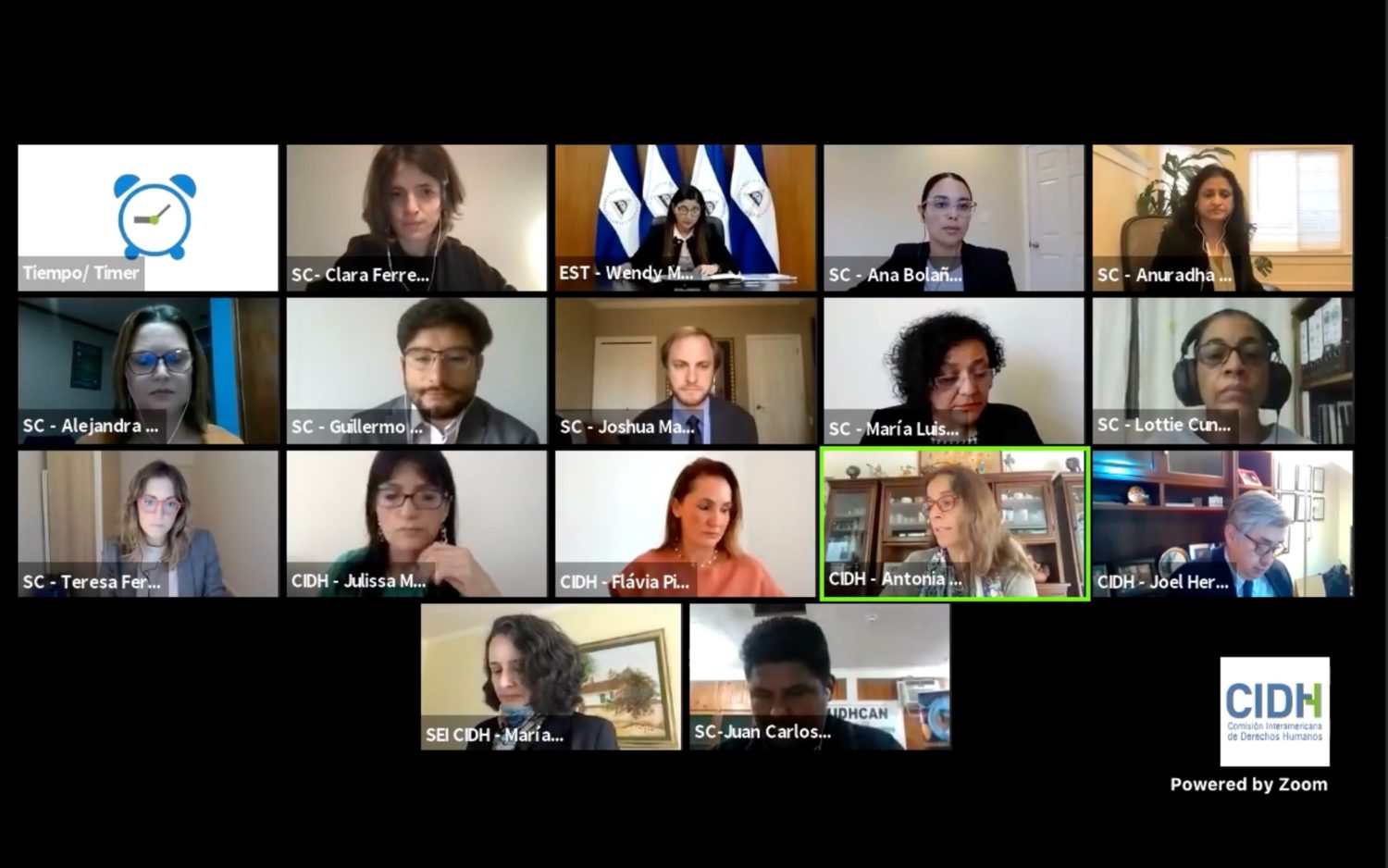Before the IACHR: Nicaragua’s colonization policy exposes indigenous peoples to ethnocide
March 19, 2020.- The colonization of indigenous territories on the Nicaraguan Caribbean coast, encouraged by extractive activities on the natural resources necessary for the livelihood of Miskitu and Mayangna communities; the serious violations committed to deprive them of their territory; the resulting forced displacement and the food crisis faced by the communities expose these peoples […]

March 19, 2020.- The colonization of indigenous territories on the Nicaraguan Caribbean coast, encouraged by extractive activities on the natural resources necessary for the livelihood of Miskitu and Mayangna communities; the serious violations committed to deprive them of their territory; the resulting forced displacement and the food crisis faced by the communities expose these peoples to a posible ethnocide.
This situation was raised yesterday before the Inter-American Commission on Human Rights (IACHR) during the thematic hearing “Impact of colonization in indigenous territories of the Atlantic Coast in Nicaragua”, held within the framework of the 179th Period of Sessions of this organism.
During the hearing, civil society organizations denounced that the cattle ranching, gold mining and forestry industries have promoted the colonization of the Caribbean coast, in complicity with the Nicaraguan State, which has failed to comply with the territorial saneamiento process and to guarantee the consultation and consent of indigenous and Afro-descendant peoples for the installation of extractive projects. They also assured that the Nicaraguan State has participation and interests in these sectors, among others, through the investment promotion agency (ProNicaragua), its four-year human development plan, and the direct participation of state and parastatal companies in the colonization, such as ENMINAS and Alba Forestal.
In this regard, the organizations stated that Nicaragua has the largest livestock industry in Central America, 95% of which is destined for export. Gold mining has also grown under the Ortega government, with approximately 60% of Nicaragua’s land mass going to mining concessions, including exploration in autonomous territories. They also denounced that senior regional and national government officials have approved the illicit land sales and logging permits within communal lands; and raised concerns about the regulation of permitting the extraction of fallen trees following the passage of IOTA and ETA in 2020.
The Nicaraguan State has also promoted private interests and political control in indigenous and Afro-descendant territories through the installation of parallel communal and territorial governments, while refusing to recognize the authorities elected by the population.
As a result of this colonization policy, at least 13 murders, eight people wounded in armed attacks, two kidnappings and the forced displacement of a community were documented in 2020 alone. Thus, in the last decade, between 2011 and 2021, 49 Miskitu indigenous people have been killed, 53 people injured, 46 kidnapped and 4 disappeared. The organizations estimate that violence has forcibly displaced approximately 1,000 Miskitu people in just 12 communities. To date, these acts remain unpunished.
Individuals and organizations that defend the land, territory and human rights of indigenous peoples in this region also face serious risks. According to the organizations, they experience continuous harassment, acts of stigmatization and threats, digital harassment, and administrative and bureaucratic barriers imposed by the government to limit their work. This, without the State fulfilling its obligation to develop protection mechanisms and investigation protocols for cases against human rights defenders, as ordered by the Inter-American Court of Human Rights (IACHR Court) in 2017.
Against this backdrop, the president of the Inter-American Commission, Antonia Urrejola, reminded the State of Nicaragua of its obligation to comply with the regulation of the territories of the Caribbean coast, as well as the right of indigenous peoples to collective property that contemplates not only the titling of ancestral territories, but the obligation not to grant exploration or exploitation concessions in these territories; and to respect the right of peoples to prior, free and informed consultation.
For its part, the State of Nicaragua, represented by Wendy Morales Urbina, Attorney General of the Republic, committed to receive information from civil society organizations, as well as to inform the IACHR about the situation of indigenous peoples on the Caribbean coast and its measures to respond to the facts presented.
Finally, the civil society organizations made a series of requests to the Commission. Among them, they requested that the IACHR demand that the Nicaraguan State:
- Immediately ceases all types of threats and attacks against individuals and communities defending the rights of indigenous and Afro-descendant peoples; and refrain from taking reprisals against the participants in the hearing.
- Immediately, exhaustively and impartially investigates the facts denounced, punish those responsible and provide reparations to the victims.
- Urgently and immediately implements the precautionary and provisional measures granted to the indigenous communities.
- Informs about the plans and concrete measures to implement the remediation of the 23 territories of the Caribbean coast.
- Adopt the necessary measures to guarantee the return of displaced families from their communities and guarantee adequate access to basic services.
The organizations that participated in the hearing are the Center for Justice and International Law (CEJIL), the Center for Justice and Human Rights of the Atlantic Coast of Nicaragua (CEJUDHCAN), the Center for Legal Assistance to Indigenous Peoples (CALPI), the International Institute on Race, Equality, and Human Rights, the Oakland Institute, and the World Organization Against Torture (OMCT).

